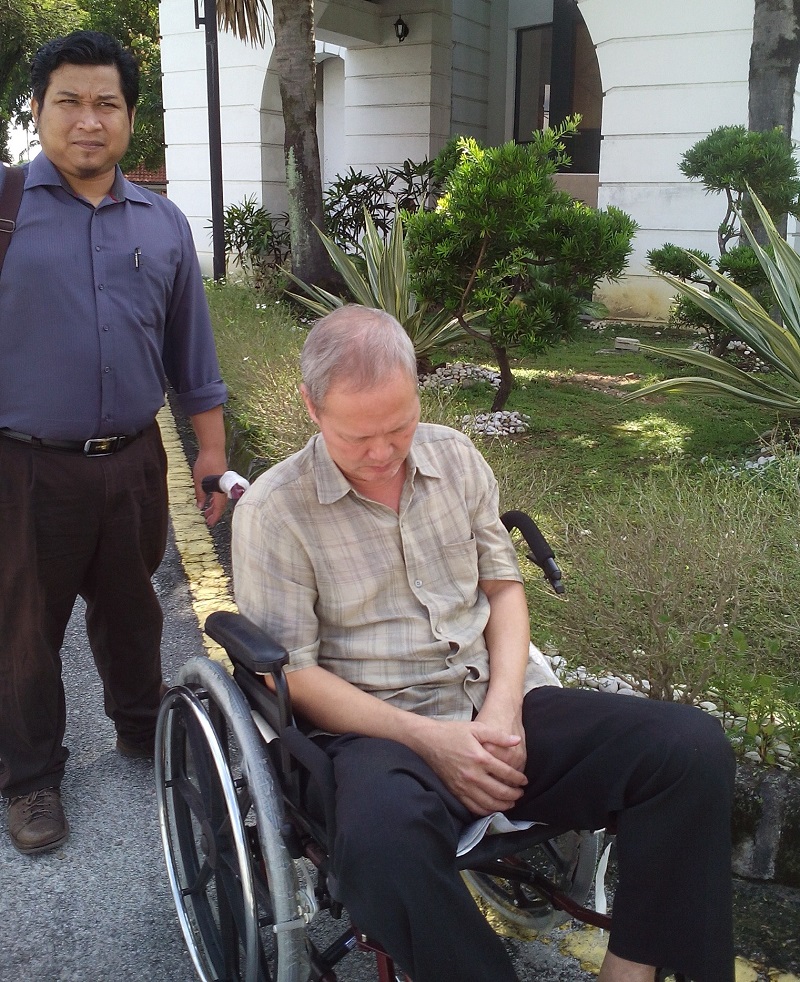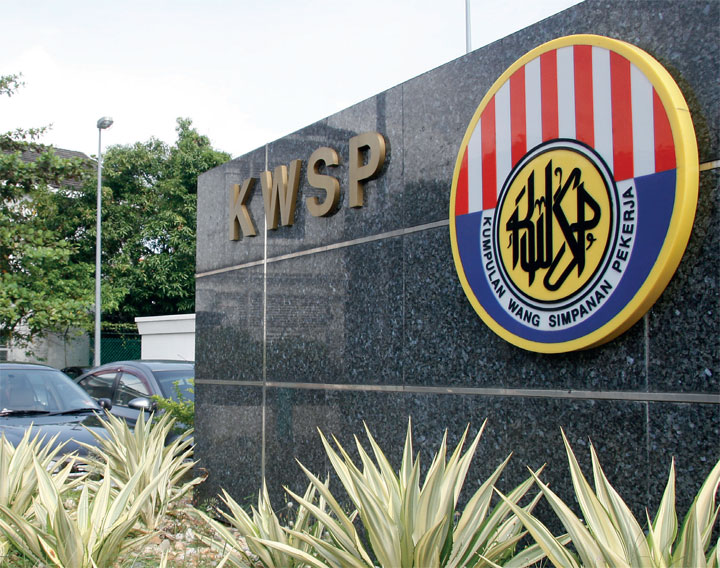54-Year-Old In Need Of Liver Transplant Unable To Withdraw From His Own EPF Savings
Employees Provident Fund of Malaysia is a national social security organisation that provides retirement benefits to its members through management of their savings. Why can't this man withdraw his own savings to pay for a life-changing liver transplant?
This is Lau Poh Lee, a 54-year-old wheelchair-bound former construction firm manager, with his counsel Ranjit Singh outside the Ipoh High Court on 10 June 2015. According to The Malaysian Insider, back in July 2014, Lau was diagnosed with hepatome hepatomegaly (enlarged liver) and was subsequently diagnosed with isohemic heart disease, liver cirrhosis and diabetes mellitus.
His consultant physician and cardiologist said Lee was in a dire need of a liver transplant and was medically certified as incapacitated physically from engaging in employment. After which, he applied to the EPF to withdraw his savings to pay for surgery.
A rather simple appeal carrying legitimate merit which should have been easily approved, considering how it was under the EPF's guidelines for withdrawal, which states that "withdrawals are also possible when a member becomes disabled or requires essential medical treatment". However, the organisation rejected the appeal.
Not giving up, Lee once again applied. However, his subsequent appeal against the decision was also rejected. According to EPF's lawyer Karlos Israphil Bendlin, who told the Ipoh High Court that based on the medical evaluation of three government doctors, Lee was healthy.
The EPF's management board was also satisfied with the findings of the EPF medical board which evaluated his level of disability.
In court, Lee's counsel Ranjit, in applying for a judicial review of the decision, argued that the requirement for consent from three medical practitioners on the EPF Medical Board was illegal, since only two were needed for consent.
However, the judge S.M. Komathy Suppiah disagreed, finding that the medical board was legally convened and its decision was correct and on 10 June 2015, rejected Lee's application to compel the EPF to release his contributions on the grounds that he would be able to work again after his surgery.
His counsel Ranjit aptly laments his client's position
"Even if it is true that Lee will be able to work again, he needs money to seek treatment first, before he could get employment and continue to contribute to EPF. In the meantime, where is he to get the funds?” asked Ranjit.
"Unless, he is to desperately turn to Ah Long for a loan."
It's a sad situation, especially when you consider the fact that Lee had contributed to EPF since early 1980 and still could not get at least part of his own savings to pay for his medical expenses. Lee's EPF funds on 6 August 2014 stood at RM833,311 (USD222,423).
However, the EPF said it allowed members to withdraw funds from Account II of their savings for medical expenses incurred for the treatment of critical illnesses and/or to buy medical aid equipment as approved by the EPF board for themselves or approved relatives.
The national social security organisation said the above in response to questions from The Malaysian Insider on the decision of the Ipoh High Court on 10 June to not release the full EPF contributions of the former construction firm manager to pay for a liver transplant.
According to The Malaysian Insider's report, the EPF can consider Lee's application if he wants to withdraw from his Account II to fund his medical treatment as stipulated in the EPF's Health Withdrawal scheme.
A member's EPF savings consists of two accounts that vary by their share of savings and withdrawal flexibilities. The first account, dubbed "Account I", stores 70% of the members' monthly contribution, while the second account, dubbed "Account II", stores 30%. Account I restricts withdrawals to the moment the member reaches an age of 55 years old, is incapacitated (which Lee is, according to his doctors. He is wheelchair-bound.), leaves the country or passes away.
However, withdrawal of savings from Account II is permitted for down payments or loan settlements for a member's first house, finances for education and medical expenses, investments, and the time when the member reaches 50 years of age (Lee is 54).
EPF's corporate communication department in KL said Lee was allowed to withdraw his savings in Account II for the health treatment he needs, but not the full amount of savings in his fund, The Malaysian Insider reported. Left with no choice, Lee lawyer Ranjit said an appeal will be filed against the High Court decision.
Meanwhile, take our poll and let us know your views:

